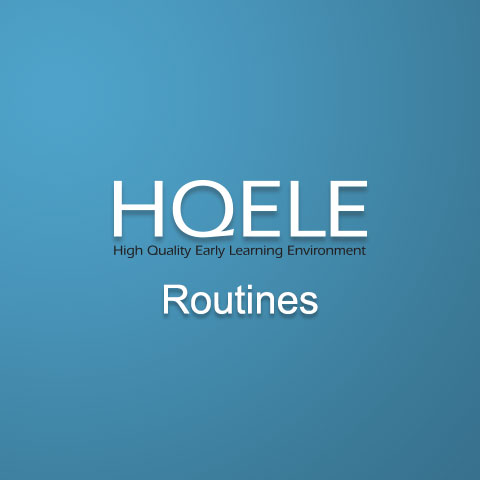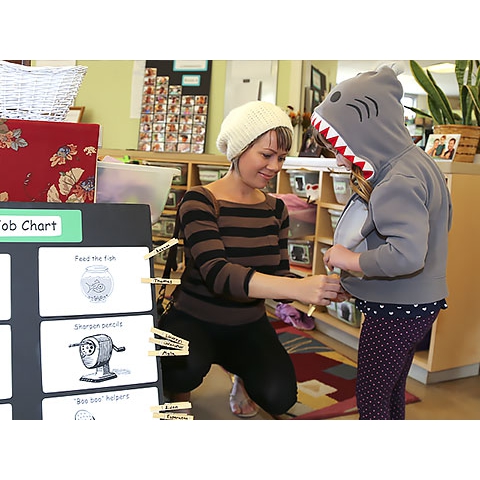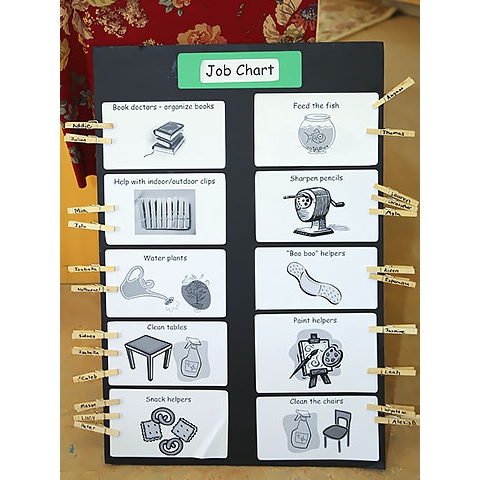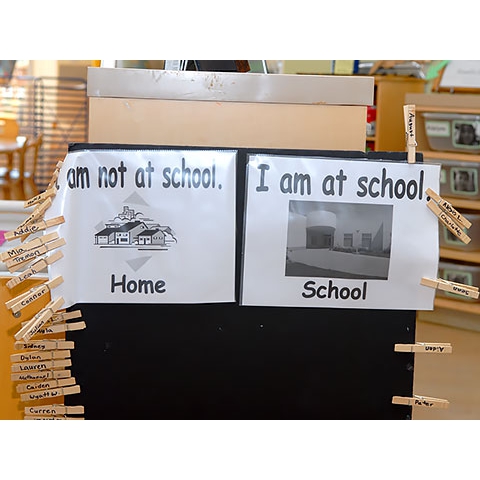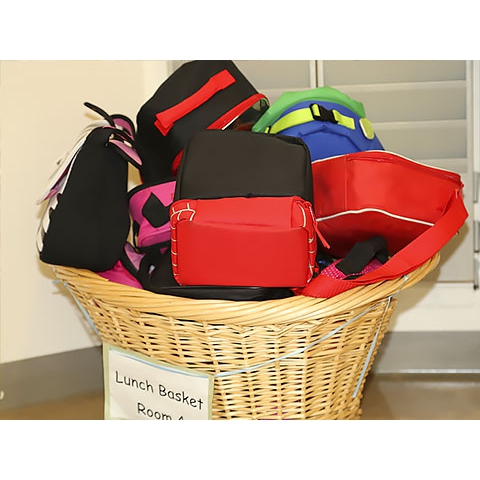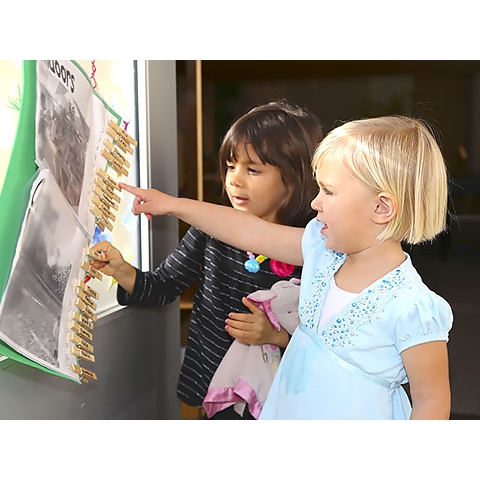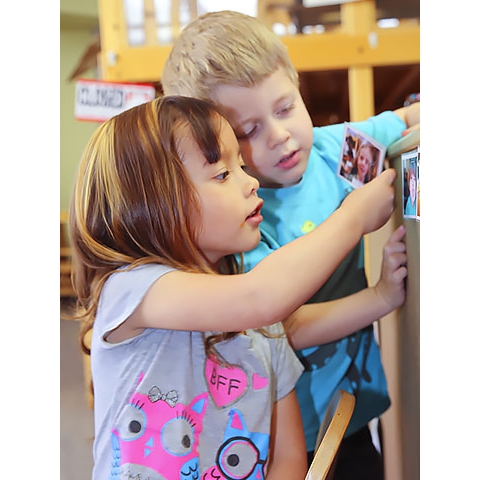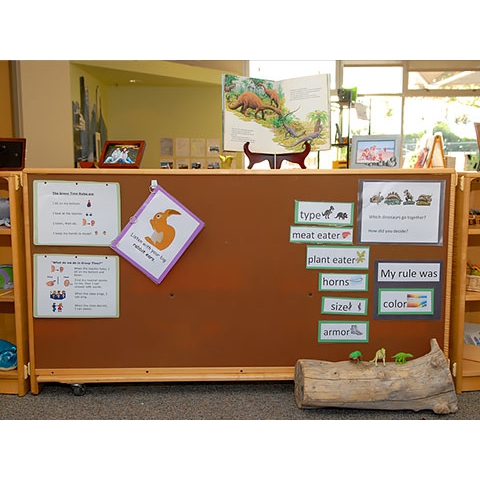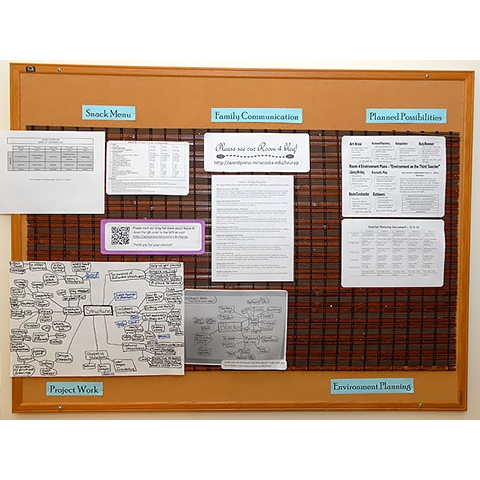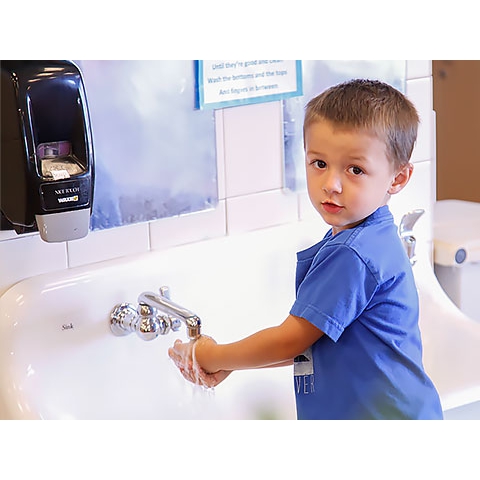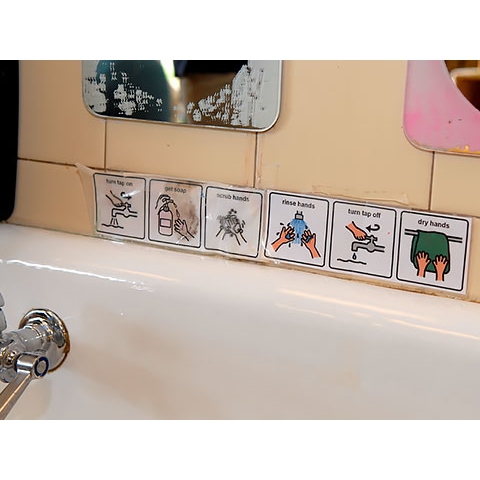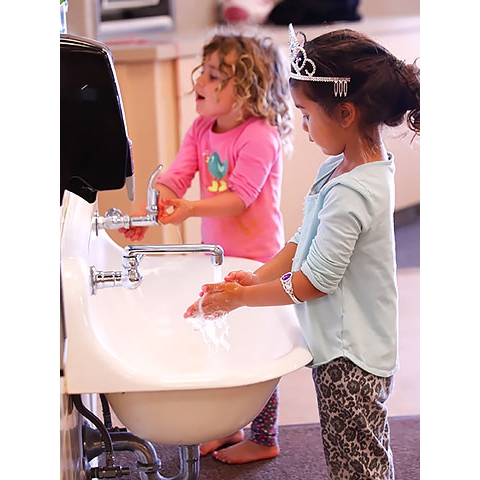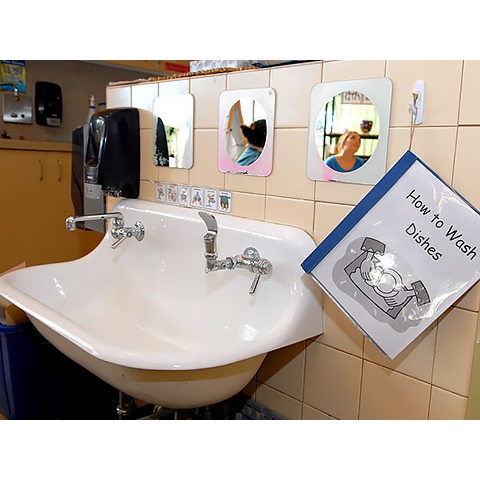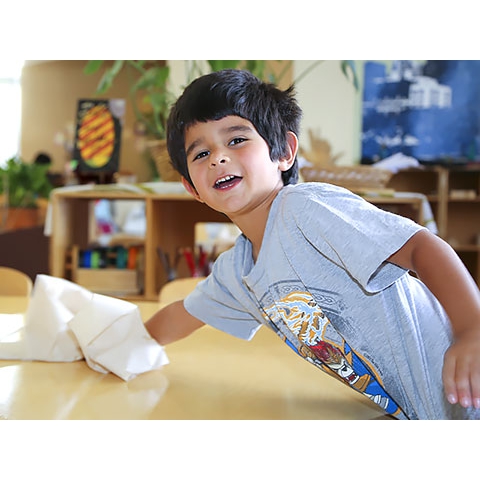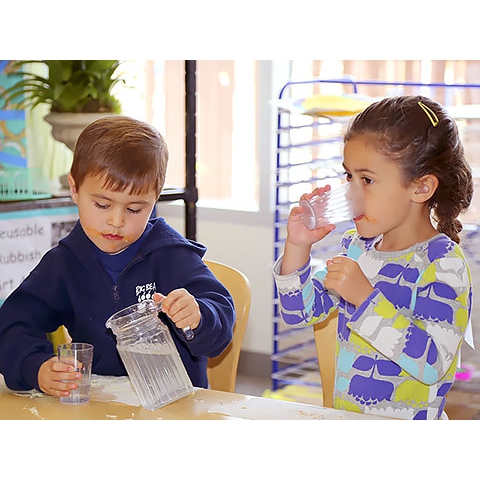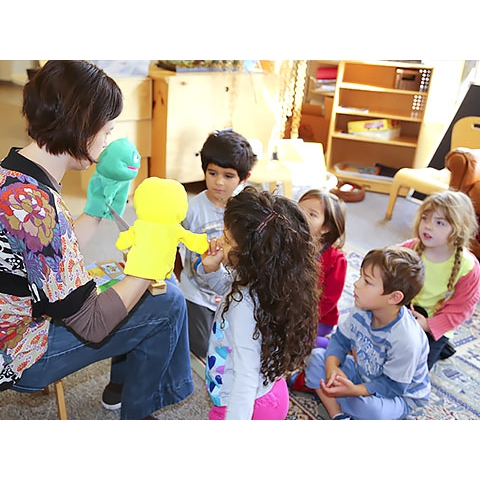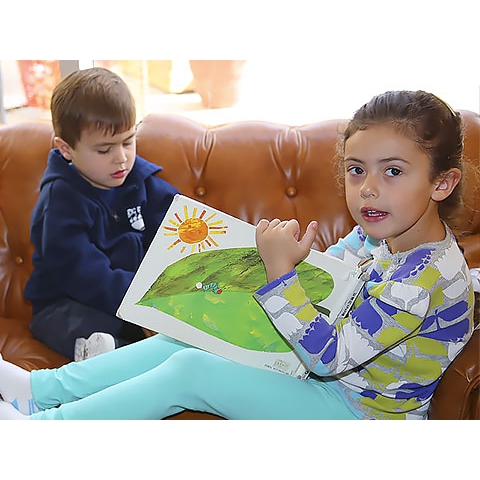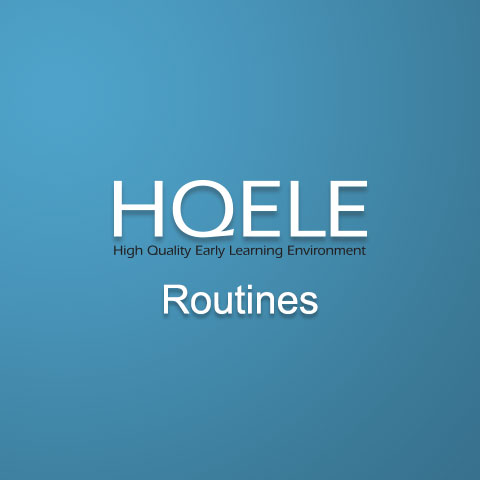HQELE Key Element: Routines
Routines - A familiar sequence to the day that allows the child to predict events, anticipate transitions and develop a sense of trust.
A consistent schedule of daily routines offers the child a sense of security through the ability to predict, which, in turn, establishes trust, the fundamental building block of relationships. Together, relationships and routines provide an essential basis for the design of the environment, parent/teacher partnerships, curriculum development and assessment of learning outcomes. Transitions should be minimized and consistent warning provided in order to insure children can anticipate what happens next and prepare accordingly. Likewise, there should be ample time throughout the day devoted to investigations, explorations, projects and interactions with both peers and adults.
The hot spots represented on the panoramic tour represent a sample of this particular Key Element. Explore the Video Clips and Slideshow in this section to learn more.
Slideshow*
Videos
- Routines: Sara - A Teacher’s Perspective on Routines
- Routines: Laura - A Teacher’s Perspective on Routines
- Routines: Intentional Teaching Related to Routines
Websites
- Understood
For persons with disabilities who want help with behaviors, learning, and everyday skills. - Building Environments That Encourage Positive Behavior: The Preschool Behavior Support Self-Assessment
This article shares a teacher self-assessment tool that helps teachers of preschool children examine how their classrooms support children’s positive behavior.
Articles/Publications
- Family Engagement and SEL
This article discusses how schools and families can have shared behavioral expectations and a common language for social and emotional skills that benefits students, teachers, and families. - Resources for Teaching and Learning through Routines and Transitions
 (1.66 MB PDF)
(1.66 MB PDF) - Planning Transitions to Prevent Challenging Behaviors.
 (770k PDF)
(770k PDF)
This article discusses why challenging behavior occurs during transitions, strategies for planning and implementing more effective transitions, ideas for using transitions to teach social skills and emotional competencies, and a planning process for working with children who continue to have difficulty during transitions. (Beyond the Journal – Young Children on the Web. Hemmeter, et al. 2008 )
- Picturing Good Practice -- Take a Look! Visual Supports for Learning
 (7.6 MB PDF)
(7.6 MB PDF)
This article helps teachers plan for the use of visual supports and explains how visual supports provide predictability and structure in the daily routine. - What Works Briefs Series, Center for Social and Emotional Foundations for Early Learning (CSEFEL):
- Brief 3 - Helping Children Understand Routines and Classroom Schedules by M. M. Ostrosky, E. Y. Jung, M. L. Hemmeter, D. Thomas
 (256k PDF)
(256k PDF) - Brief 4 - Helping Children Make Transitions between Activities by M. M. Ostrosky, E. Y. Jung, M. L. Hemmeter
 (253k PDF)
(253k PDF) - Brief 5 - Using Classroom Activities and Routines as Opportunities to Support Peer Interaction by T. Bovey, P. Strain
 (259k PDF)
(259k PDF) - Brief 6 - Using Environmental Strategies to Promote Positive Social Interactions by T. Bovey, P. Strain
 (199k PDF)
(199k PDF) - Brief 7 - Helping Children Learn to Manage Their Own Behavior by L. Fox, S. Garrison
 (924k PDF)
(924k PDF)
- Brief 3 - Helping Children Understand Routines and Classroom Schedules by M. M. Ostrosky, E. Y. Jung, M. L. Hemmeter, D. Thomas
- The Intentional Teacher, Choosing the Best Strategies for Young Children’s Learning
(Revised edition 2014) by Ann S. Epstein - Routines & Transitions — A Guide for Early Childhood Professionals
By Nicole Malenfant - Transition Magician: Strategies for Guiding Young Children in Early Childhood Programs
By Nola Larson, Mary Henthorne and Barbara Plum - PEAT’s Suite
By Suzanne A. Milbourne. The Physical Environment and Assistive Tools Suite is a comprehensive package of materials that helps service providers (educators, therapists, etc.), families, and others support the participation of young children with differing abilities in typical routines and activities. - MiraCosta Sample Snack Time Menu
 (30k PDF)
(30k PDF) - MiraCosta Sample Spinach Pineapple Smoothie Recipe
 (184k PDF)
(184k PDF) - MiraCosta Sample Group Time Cue Cards
 (151k PDF)
(151k PDF) - MiraCosta Sample Dish Hand Washing Guidelines
 (539k PDF)
(539k PDF)
Many strategies and elements included throughout this site are applicable to all students and their families. Additional information/resources related to students with disabilities and family engagement can be found within the HQELE Online Tool Overview and MiraCosta Child Development Center Overview (Download/Reference Sections).
*These slideshow images are being used with explicit permission from MiraCosta College and their families for the sole purpose of the HQELE professional development online tool. All images remain the property of the California Department of Education, Special Education Division, SEEDS Project, A Special Project of the Sacramento County Office of Education and may not be published, exhibited, broadcast, posted on the Internet, sold, traded, shared, or used in any way not specified without the written permission of CDE- SEEDS Project.

